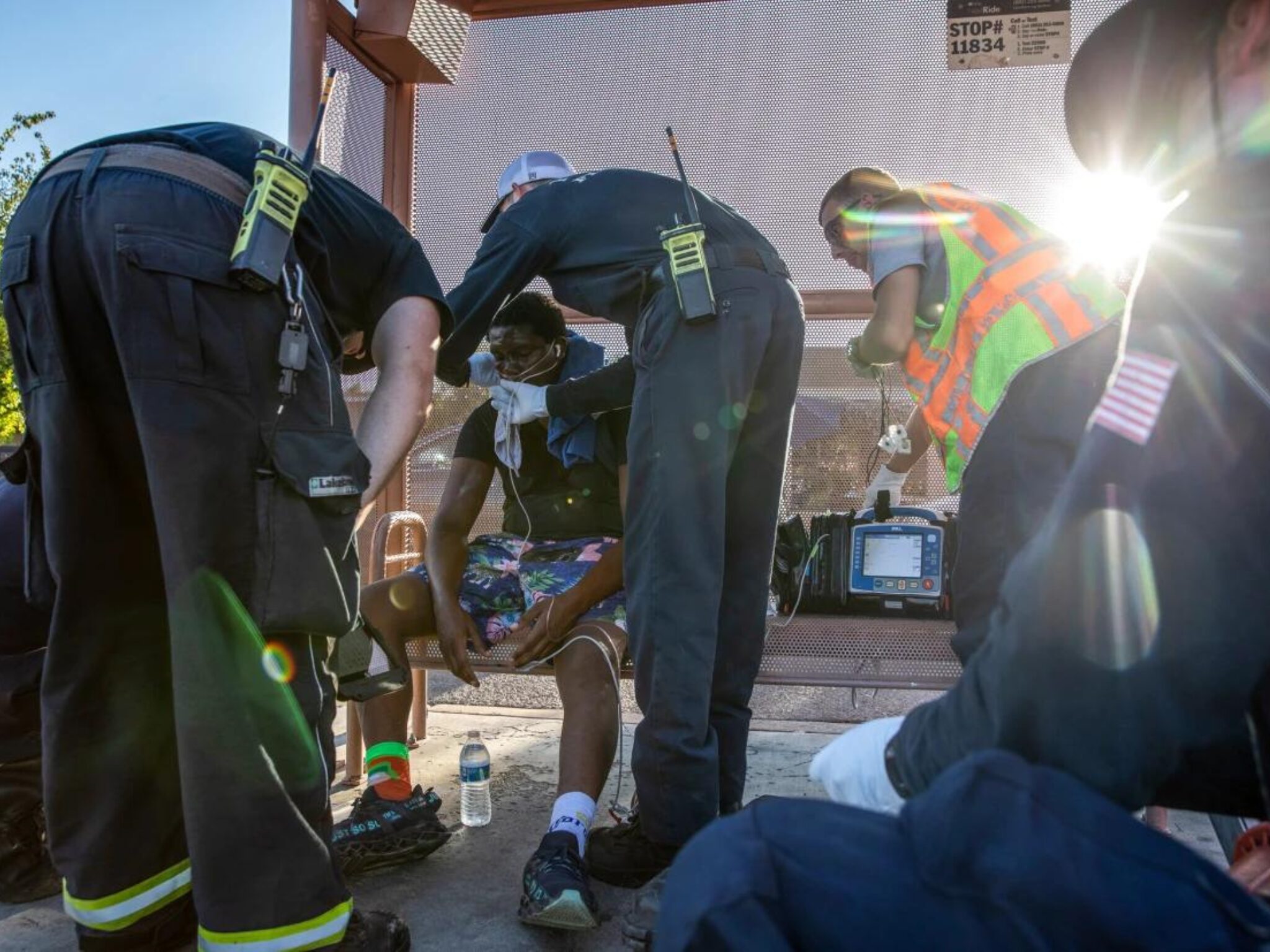Big Oil Could Be Charged with Homicide for 2023 Arizona Heatwave
5 Mins Read
Fossil fuel companies could be reasonably charged with homicide for deaths caused by a 2023 heatwave in Arizona, a group of lawyers say in a public memo.
In Washington DC, Abraham Lincoln’s head melted off his wax statue at an elementary school thanks to the ongoing heatwave, which has reached record temperatures.
It’s got to a point where politicians are telling Americans to not stay at home if they don’t have air conditioning, calling heat the “deadliest weather we have”.
Down south in Arizona, heatwaves were highly lethal in 2023, killing 645 people in Maricopa County, which includes Phoenix. The state’s capital also endured 31 consecutive days of temperatures over 110 °F (43 °C), making July the hottest month for any US city, ever.
This year, things have gotten worse. Last month was the hottest June on record in Phoenix, and by June 29, the Maricopa County’s medical examiner estimated a possible 175 heat deaths. This was an 84% hike from the same period last year.
Now, a group of lawyers warn that prosecutors could reasonably press homicide charges against fossil fuel companies because of those heatwave-related deaths. “[T]he case for prosecuting fossil fuel companies for climate-related deaths is strong enough to merit the initiation of investigations by state and local prosecutors,” they write in a prosecution memorandum.
Climate deaths deserve same justice as ‘street-level homicides’

Published by the consumer advocacy non-profit Public Citizen, the document suggests that the Arizona state could argue a case for reckless manslaughter or second-degree murder for the hundreds of deaths that would have been “virtually impossible”, but for human-caused climate change.
“As Americans reeled from another lethal heatwave last week, it’s important to remember that these climate disasters didn’t come out of nowhere,” Aaron Regunberg, senior policy counsel with Public Citizen’s climate programme and co-author of the report, told the Guardian. “They were knowingly caused by fossil fuel companies that chose to inflict this suffering to maintain their profits.”
The fossil fuel industry is the number one cause of climate change. Calls for a fossil fuel phaseout have been ringing for years, but leaders at COP28 last year failed to agree to a phaseout, instead stipulating a shift away from oil, coal and natural gas this decade and vowing to triple renewable energy sources by 2030, with a net-zero goal for 2050.
But analysis has shown that none of the production and transition plans for the world’s 25 largest fossil fuel companies align with the temperature goals agreed at the 2015 UN climate conference in Paris. Big Oil attended COP28 in the UAE – a petrostate – in huge numbers, and there aren’t many signs of change, with this year’s COP29 also being held in an oil state that has vowed to keep investing in fossil fuels.
The victims of last summer’s heatwaves were diverse, with some older with pre-existing health conditions, and others young and healthy. “Some were homeless, like the man who died after breaking both legs jumping over a fence in a desperate attempt to find shade outside an elementary school; others were well off, like the woman who died in her $1 million home in Scottsdale,” the memo states.
“These companies have made trillions of dollars from their reckless conduct, while regular people, like the victims of the July 2023 heat wave, pay the price,” it adds. “These victims deserve justice no less than the victims of street-level homicides.”
A starting point for prosecutors

The number of fossil fuel and climate lawsuits has grown sharply in the last few years. In the US, 40 states and cities have sued Big Oil operators for their contribution to climate change and climate denial. Each of these cases is based on civil charges like tort law and racketeering protections.
Public Citizen has proposed filing criminal charges against these companies too, most notably homicide. While it feels like a far-fetched theory, it is gaining interest from experts, officials and even likely voters. And while such litigation would still be tough to file, the memo is a step towards putting the idea into action.
“Although civil remedies are, of course, vital, sometimes only our criminal laws can measure up to the harm someone has inflicted,” said Cindy Cho, a former federal prosecutor and co-author of the memo. “If human-generated climate change is killing people, and the organisations that generated it knew the risks, then it stands to reason that criminal charges may be exactly what society expects.”
Although the memo focuses on Arizona, its authors outline how this climate event was “not a unique occurrence”, with extreme weather events like heatwaves, hurricanes, wildfires, etc. killing thousands of Americans in both the mainland and continental US.
“The charges described in this memo provide a starting point for similar analyses that could, and should, be undertaken by prosecutors in every jurisdiction that experiences loss of life due to climate disasters,” they write.
The memo comes just as another report by the Grantham Research Institute on Climate Change and the Environment revealed that since 2015, around 230 climate change lawsuits have been filed against corporations and trade associations, two-thirds of which began in 2020 and after. The US accounted for more than half (129) of these, although only 15% of cases were against companies.
The importance of climate litigation was highlighted by a UNEP report last year, with the programme’s head of international environment law saying it “has become an undeniably significant trend in how stakeholders are seeking to advance climate action and accountability”.



